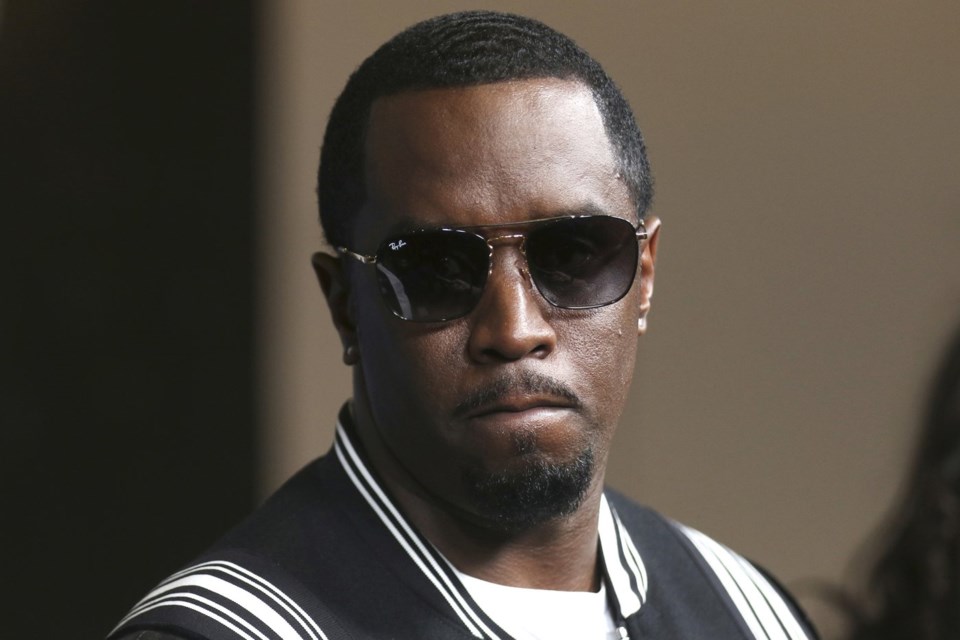NEW YORK (AP) — The jury in Sean “Diddy” Combs’ sex trafficking trial said Tuesday that it has reached a verdict on four of five counts against the hip-hop mogul. But the partial decision remained under wraps after jurors were told to keep deliberating because they were stuck on the top charge, racketeering conspiracy.
Prosecutors, Combs’ defense team and Judge Arun Subramanian reasoned that after just two days of deliberations, it was too soon to give up on reaching a verdict on all counts. So rather than taking a partial verdict, Subramanian told the jury to continue weighing the remaining charge. Deliberations will continue Wednesday.
The developments came late Tuesday afternoon, when the jury sent a note saying it was unable to reach a unanimous verdict on the racketeering conspiracy charge because there were jurors with “unpersuadable views” on both sides.
But in less than 13 hours of deliberations, the jury did reach a verdict on two counts of sex trafficking and two counts of transportation to engage in prostitution. The latter concerns allegations of arranging to fly the women and sex workers across state lines.
If there is a conviction, the sex trafficking charge carries a mandatory minimum sentence of 15 years in prison and a maximum sentence of life. Transportation to engage in prostitution carries a maximum sentence of 10 years in prison.
The outstanding charge, racketeering conspiracy, carries a maximum sentence of life in prison.
After hearing about the jury note, Combs, 55, appeared morose as his lawyers spoke with him. At one point, the hip-hop mogul solemnly read a piece of paper that attorney Marc Agnifilo handed to him.
After the jury came in for instructions and then exited the room, a subdued Combs sat in his chair for a few minutes. As he stood to leave, he faced his relatives and supporters in the audience, blew a kiss and tapped his heart, as he frequently has done at the start and end of each day.
Then he paused before his mother and exchanged a few words, telling her, “Love you” and “I’ll be all right.”
Marshals then led him from the room.
Jurors are weighing charges that Combs used his fame, wealth and violence to force two girlfriends into drug-fueled sex marathons with male sex workers known as “freak-offs” or “hotel nights.”
He has pleaded not guilty. His lawyers contend prosecutors are trying to criminalize Combs’ swinger lifestyle and that, if anything, his conduct amounted to domestic violence, not federal felonies.
Racketeering conspiracy is the most complicated charge because it requires the jury to decide not only whether Combs ran a “racketeering enterprise,” but also whether he was involved in committing such offenses as some or all of various types of offenses, such as kidnapping and arson.
Earlier Tuesday, the jury asked to review critical testimony from one of the prosecution’s most important witnesses: the hip-hop mogul's former longtime girlfriend Cassie, the R&B singer born Casandra Ventura.
The panel of eight men and four women asked for Cassie’s account of Combs beating, kicking and dragging her at a Los Angeles hotel in 2016 — an assault captured on now-infamous security camera footage.
They also asked to see Cassie’s testimony about when she said Combs accused her of taking drugs from him and kicked her off their yacht at the Cannes Film Festival in France in 2013. On their way back to the U.S., she said, he threatened to release explicit videos of her having sex.
In addition, the jury asked for Cassie and stripper Daniel Phillip’s testimony about her jumping into his lap at a New York City hotel. Phillip testified that “she was terrified,” and he suspected Combs had been slapping and slamming her around an adjacent room.
Phillip testified that he told her she was in real danger. Cassie, he said, “basically tried to convince me that it was OK: ‘It’s OK. I’m fine, I’ll be OK.’"
Tuesday's court session began with the lawyers and judge considering the jury's request late Monday for clarification about what qualifies as drug distribution, an aspect of the racketeering conspiracy charge.
Subramanian ultimately reminded jurors of instructions he'd already given on that part of the case.
On Monday, barely an hour into deliberations, the foreperson sent a note complaining that there was one juror “who we are concerned cannot follow your Honor’s instructions."
In response, the judge reminded jurors of their duties to deliberate and follow his instructions on the law.
At the trial, Combs chose not to testify. His lawyers built their arguments for acquittal mostly through lengthy cross-examinations of dozens of prosecution witnesses.
Michael R. Sisak, Larry Neumeister And Jennifer Peltz, The Associated Press


